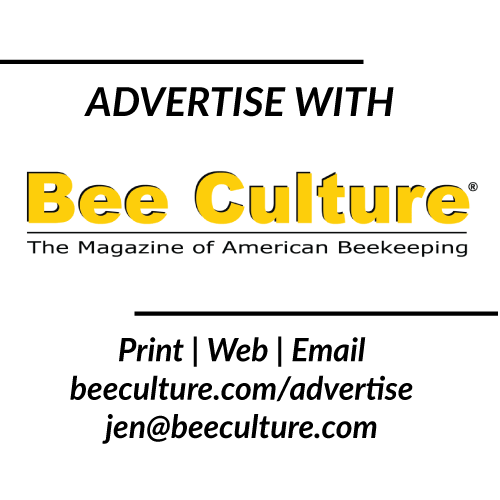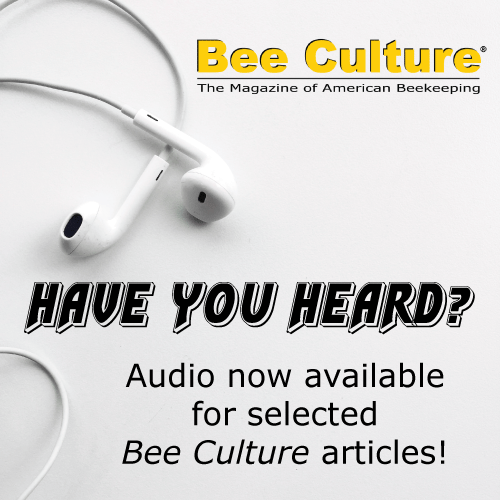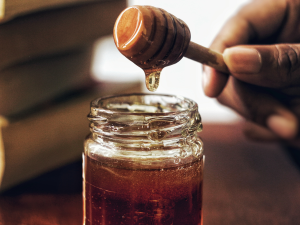Open Spaces Make Detroit the Place To Bee.
Written by Robert Smith
If the “shrinking city” phenomenon in Detroit is good for one thing, it’s bees.
While closet beekeeping operations have been a staple of Detroit’s urban agriculture since the 1930s, backyard beekeeping is experiencing a resurgence in popularity.
The city’s beekeepers credit urban farming efforts, the city’s large swaths of open land and nationwide concern about the wide-ranging impact of declining bee populations.
“Detroit is almost like living in the country,” veteran beekeeper Rich Wieske, 65, said. “There’s 140 square miles, and a third of it is open, vacant land. What grows in vacant land? ‘Weeds,’ or flowers. It’s a great nectar source. And who sprays? It’s fabulous.”
A University of Michigan published in May looked at bee populations in urban areas and found conclusions similar to Wieske’s observations.
The data showed that in urban areas where female bees have fewer opportunities to forage within a five-mile radius of the hive, population and diversity declined. These findings line up with the more commonly known negative relationship between industrial farming practices and bee populations.
Surprisingly, however, the number of bees in Detroit does not reflect this nationwide decline. The study concluded that vacant lots, with flowering weeds that go untreated by pesticides, support bee diversity just as well as nearby green spaces.
For the scientists involved, Detroit even represents a paradigm for how urban landscapes can be managed to support native bee conservation.
According to Wieske, beehive numbers today are near levels in the 1930s, when the city had 2,000 registered hives — and, he said, many more unregistered ones. And while Detroit has always been a fertile area for hives and beekeeping, only within the last 20 years has public perception of the hobby changed.
“There’s been a 180 (degree) attitude (shift) in the public about bees,” he said. “When we started 20 years ago, you’d start talking about bees, people would fold their arms and back up. They see a very strange dude with strange insects. But everybody has an opinion now.”
The surging popularity is a boon for the self-proclaimed bee activist, who is involved in the Southeastern Michigan Beekeepers Association. He teaches beekeeping classes to more than 30 people every spring through Green Toe Gardens and sells his products at Eastern Market on Saturdays.
Keep Growing Detroit, another local urban farming company, also offers beekeeping classes. Its program, called Sweet on Detroit Bee-Ginner Beekeeping Program, pairs novice bee enthusiasts with seasoned beekeepers and provides 20 hours of training.
Detroiters Nicole Lindsey and Timothy Paule took the class this spring. Lindsey said Paule’s winter cold was cured by raw local honey, inspiring them to keep bees for homeopathic and environmental reasons.
“I thought that it would be new and different in the city of Detroit,” Paule said. “We want to educate people about bees and spread the knowledge of medicinal properties of honey, and to preserve the bee population, all while removing blight.”
By May, the duo acquired a vacant lot near E. Warren and McClellan on the city’s east side. The site has three hives and two garden plots with peppers, tomatoes, zucchini, squash and basil, lavender bushes and lemon trees, planted by Peace Tree Parks.
At first, Paule said, the neighbors were confused about their operations and on alert for signs of dumping. But once the couple explained what they were doing, the mood changed.
“It used to be an eyesore,” Lindsey said. “The neighbors love it.”
Ann Franks, 74, lives behind the lot on Cooper.
She said overgrown weeds covered the property, and the city only mowed three times last summer, but now it looks nice.
“It’s a good thing,” she said. “I’ve seen the butterflies, I hadn’t seen them in a while, so that’s good.”
Franks said she learned from Paule that as long as she didn’t bother the bees, they wouldn’t bother her.
But the best part will be the honey. “They’re going to let me taste it,” Franks said with delight.
Lindsey and Paule said they hope to keep repurposing vacant land for beekeeping and hosting events with their bees.
They have already educated students at Southeastern High School about beekeeping with a three-hour class and plan to conduct a “yoga with the bees” event.
While great for Detroit’s plentiful urban farms and gardens, the new buzz poses interesting questions for municipal governments.
Wrifton Graham, master beekeeper and owner of Great Lakes Bee Supply in Kalamazoo, said he and his company educate bee enthusiasts and veterinarians about best practices and travel to local municipalities to discuss bee ordinances and encourage an addendum for bees.
Beekeeping exists in a gray area, he said. While a minor species, they are considered large animals because they are a livestock from which humans derive goods. The comparison isn’t exactly right, he said, because a beehive has neither the same operations nor the same impact as a large animal farm.
Detroit does not have a citywide beekeeping regulation, said Kathryn Lynch Underwood, a planner with the city planning commission.
She said her goal is to make beekeeping explicitly legal.
Underwood said she’s developing an ordinance that would allow beekeeping outside schools, on farms and in backyards — so long as the land isn’t explicitly purchased to keep bees and keepers follow generally accepted industry standards.
Under her proposed regulations, gardens of up to one acre could have six hives, while larger sites could have up to eight hives. Backyards, restaurants and schools could have two hives. Hives would have to be at least 10 feet from streets, sidewalks and other public right of way.
If within 25 feet of property lines, the hive’s opening would have to face away from doors, windows and neighboring residential properties. If within five feet, a flyaway barrier would be required so honey bees fly upward and away from neighboring properties.
Under Underwood’s proposal, a beekeeping license from the Animal Care and Control Division of the Detroit Health Department would be required.
One challenge, Underwood said, is educating people about the distinction between yellow jackets and wasps, the aggressive stingers that bug picnickers, and honeybees, passive honey-producing pollinators.
So far, unless neighbors complain, authorities take no action against urban beekeepers, Underwood said.
jkroeker
Tags: bee hives × beekeping × blight × Detroit × Detroit bees × honey × ordinances × Southeastern Michigan Beekeepers Association × urban farms








